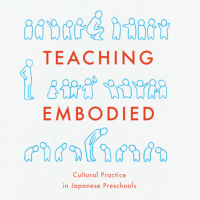Even for those without children, "Teaching Embodied" offers cultural insights that explain many fascinating details of Japan's group society. From amae (dependence) to omoiyari (empathy) and even passivity — how the Japanese prefer mimamoru (watching and guarding) to interfering or intervening.
Organized in six thematic chapters — "dealing with an aspect of how Japanese teachers think, act and talk about the role they play in children's social-emotional development" — the book records the experiences of three different Japanese preschool teachers.
U.S.-based authors Akiko Hayashi and Joseph Tobin draw on extended interviews and their own observations to analyze and explain their conclusions according to a larger cultural frame. Tobin, a professor of early childhood education at the University of Georgia where Hayashi is a postdoctoral fellow, has published many works on childhood education.
In clear conversational language, the authors focus on how Japanese teachers use nonverbal clues — body language, gestures and presentation — to relay shared beliefs to children. One example: the teachers frequently used the word "sabishii" ( lonely) to teach empathy, explaining how Japanese group values are instilled from an early age.
This book is a must for anyone with young children in Japan, to both understand the educational values your child is being taught and to understand a little more about the complex cultural values underpinning Japanese society.


















With your current subscription plan you can comment on stories. However, before writing your first comment, please create a display name in the Profile section of your subscriber account page.